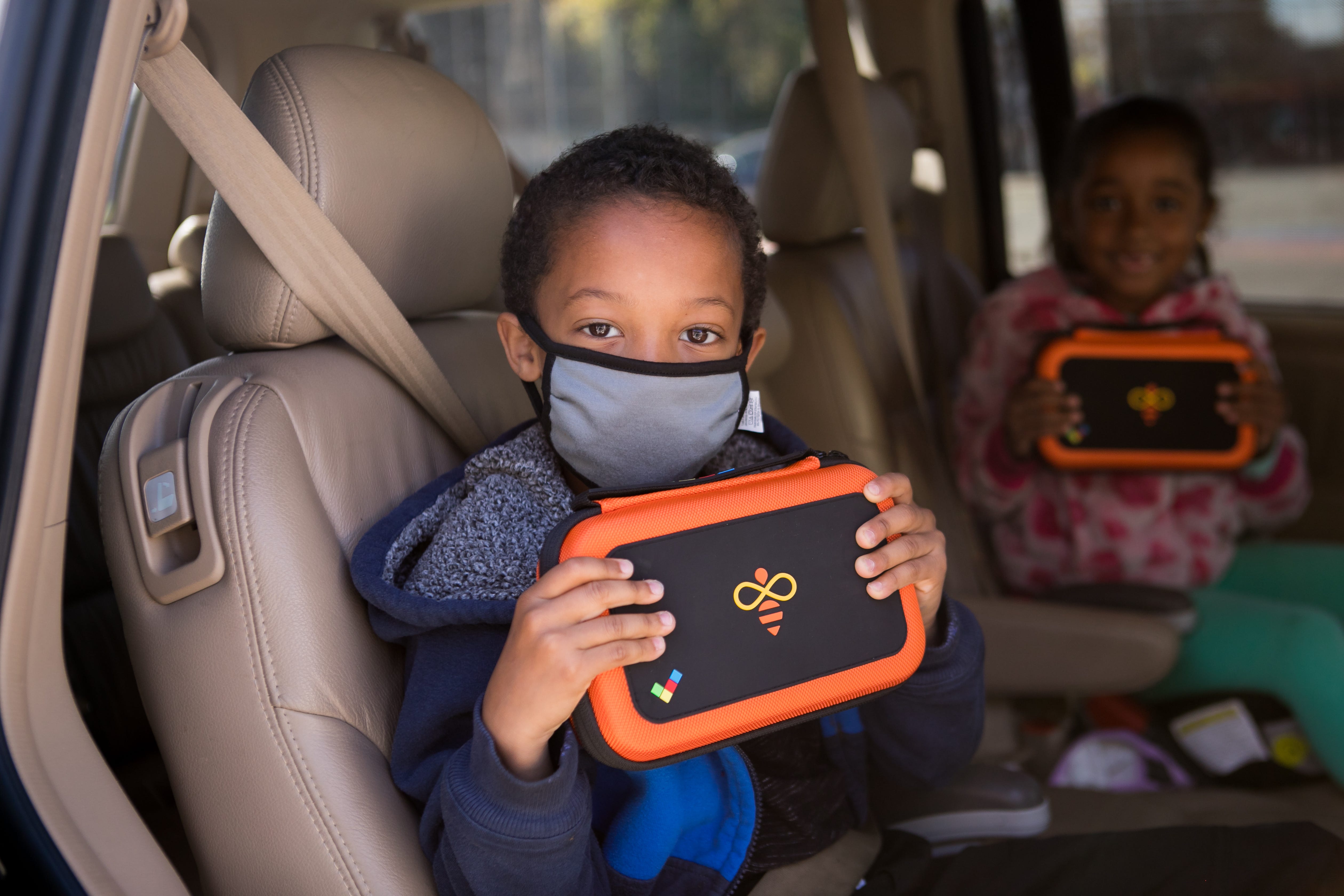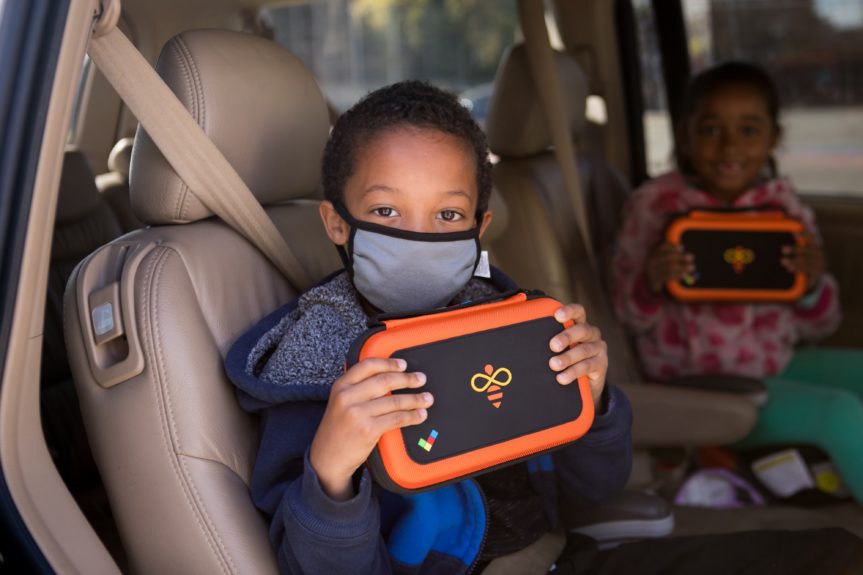Families in ActionFollowFeb 4 · 4 min read

A tablet-like device, developed in London to help children around the world learn to read and build literacy skills, is now in the hands of Oakland public school students thanks to the Oakland NAACP and FULCRUM. It’s called the onetab.
Could it be a game changer in helping young Black and Brown students learn to read? And as powerful as that would be to accomplish, could the onetab do even more?
Easy to use, and getting results
“It’s a safety net right now,” said Kareem Weaver of FULCRUM, which supports the Oakland NAACP’s literacy initiative and has distributed the devices to eight public schools in Oakland, six in Oakland Unified and two from Aspire. “But we didn’t want to just focus on COVID, we wanted to find something that could help beyond that. We targeted schools with large African-American populations and high numbers of special needs students.”
The onetab is simple and easy to use. A user doesn’t need WiFi, and there is no logging in. The only action a user really has to take to get started is to simply turn it on. Then, the device does a quick diagnostic and directs the user to the right learning activity which, research shows, will lead to students making gains: 5.3 months beyond normal gains.
“Parents are so relieved that this does not require WiFi or supervision,” FULCRUM’s Liza Finkelstein said, “as long as they know where the “on” button is, which kids intuitively already do because of other devices. One session per day, five days per week and you will make gains.”
Our country is in the midst of a literacy crisis; According to 2019 national data, Black students had an average reading score that was 37 points lower than White students. Latino/a students had an average score that was 27 points lower than White students. Even more troubling, the data notes these numbers have not improved in over 20 years.

Aspire team takes action
Lindsey Fuller, Aspire’s Regional Director of Student Services in the Bay Area, and Erin Cox, Aspire’s Director of Early Childhood Education, are all too familiar with this kind of data, and the hard work and struggles that come with trying to figure out how to improve reading scores and interrupt decades of institutional racism.
They also understand the urgency of the current moment, the great need for additional reading support and interventions for students during distance learning. But figuring out just how to make sure students and families have the right digital tools can be daunting and endless. Especially when wifi is required. “We know technology access has been a major barrier during the pandemic,” Fuller said, listing the first of many major technology issues so many families face.
Though they work in different departments, Fuller and Cox recognized the need to collaborate to address student literacy needs at the onset of the COVID-19 pandemic. After a webinar where Weaver discussed onetab, they teamed up to figure out how to bring the devices to Aspire families. “Why not try something that doesn’t burden any stakeholder?” Fuller said.
“There are a lot of different reasons we ended up collaborating,” Cox said. “But the reason why it really stuck together is that we both believe that this is a problem that is both solvable in terms of instruction, anchored in equity, and we both believe so incredibly, strongly.”
Cox and Fuller initially decided to order 40 devices for a pilot program. After the devices arrived, Weaver and FULCRUM donated 250 additional devices so students at two Aspire Bay Area schools, both of whom have African-American students as their largest demographic, have their own device to keep and take home.
Fuller is very hopeful about the potential benefits of the onetab for all Oakland families — not just students — “to secure liberation through literacy.”
“Why wouldn’t we use this for aunties and grannies, for older siblings at the secondary level who never received the foundational literacy skills they’re entitled to,” Fuller said. “Why not?”

What families think about the onetab
The feedback from families so far has been overwhelmingly positive. Aspire families were distributed devices in November. Keta Brown, a parent leader at Aspire Triumph Academy, has been checking in with families to see how they are liking them and to make sure their students are actually using them.
“They’re telling me that their child doesn’t even realize they’re learning and they want to use it more than the regular amount,” Brown said. “They think they’re playing while they’re learning and increasing their knowledge base. It’s amazing.”
What Brown is most excited about is the potential for the onetab to be a key tool (or as Weaver says, “one arrow in our quiver”) in helping Oakland kids learn to read and making a generational change.
“You have to figure it out, you can’t just keep telling me that this child can’t learn, this child won’t be able to read,” Brown said. “Don’t tell me what they can’t do. Don’t tell me it’s impossible. If I can think it, if I can believe it, then it is possible. Watch the babies on these devices and watch how they absorb. This could be a way to help change this generational problem.”


One thought on “A game changing solution for Oakland’s early literacy crisis?”